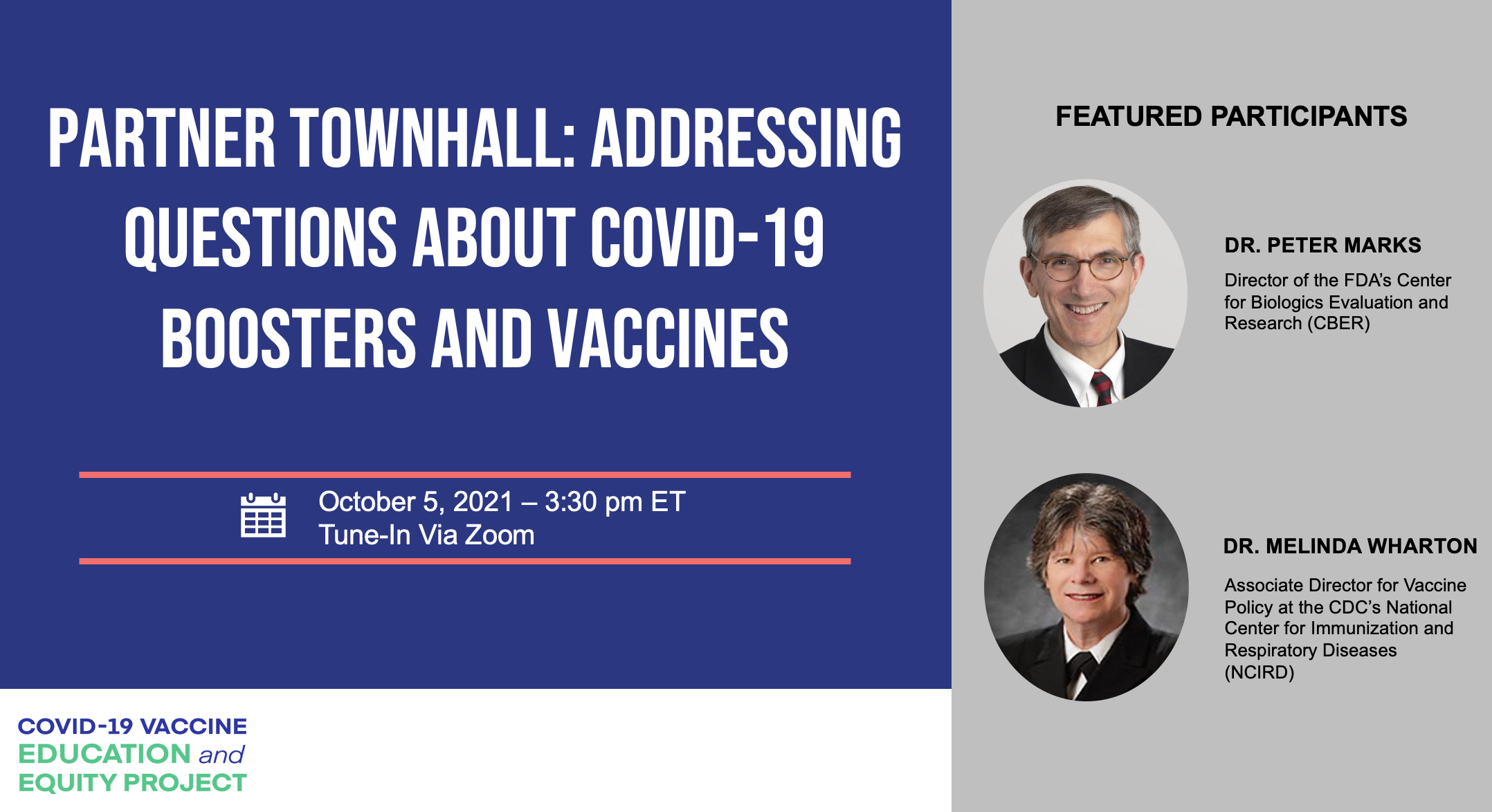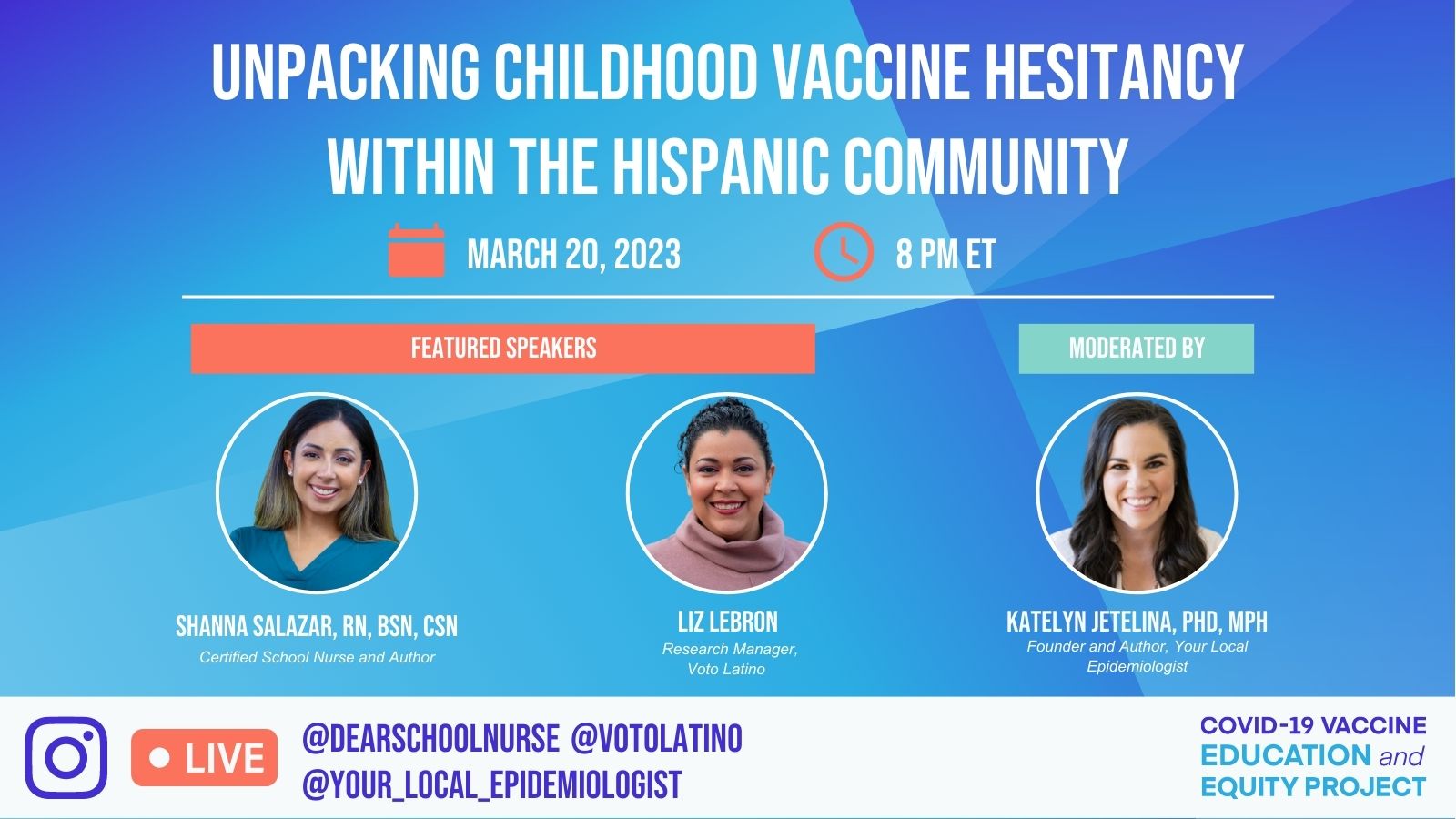
In response to recent CDC data showing a decline in routine childhood immunizations in young children, The COVID-19 Vaccine Education and Equity Project (CVEEP) partnered with Dr. Katelyn Jetelina of Your Local Epidemiologist on an online event series aimed at parents to build vaccine confidence and overcome hesitancy issues. An Instagram Live addressing misinformation and vaccine questions for parents in the Hispanic community was held March 20th at 8pm ET. Featured speakers included:
- Liz Lebron, Research Manager, Voto Latino
- Shanna Salazar, RN, BSN, CSN, Certified School Nurse and Author
Dr. Jetelina moderated the discussion, which can be viewed here.
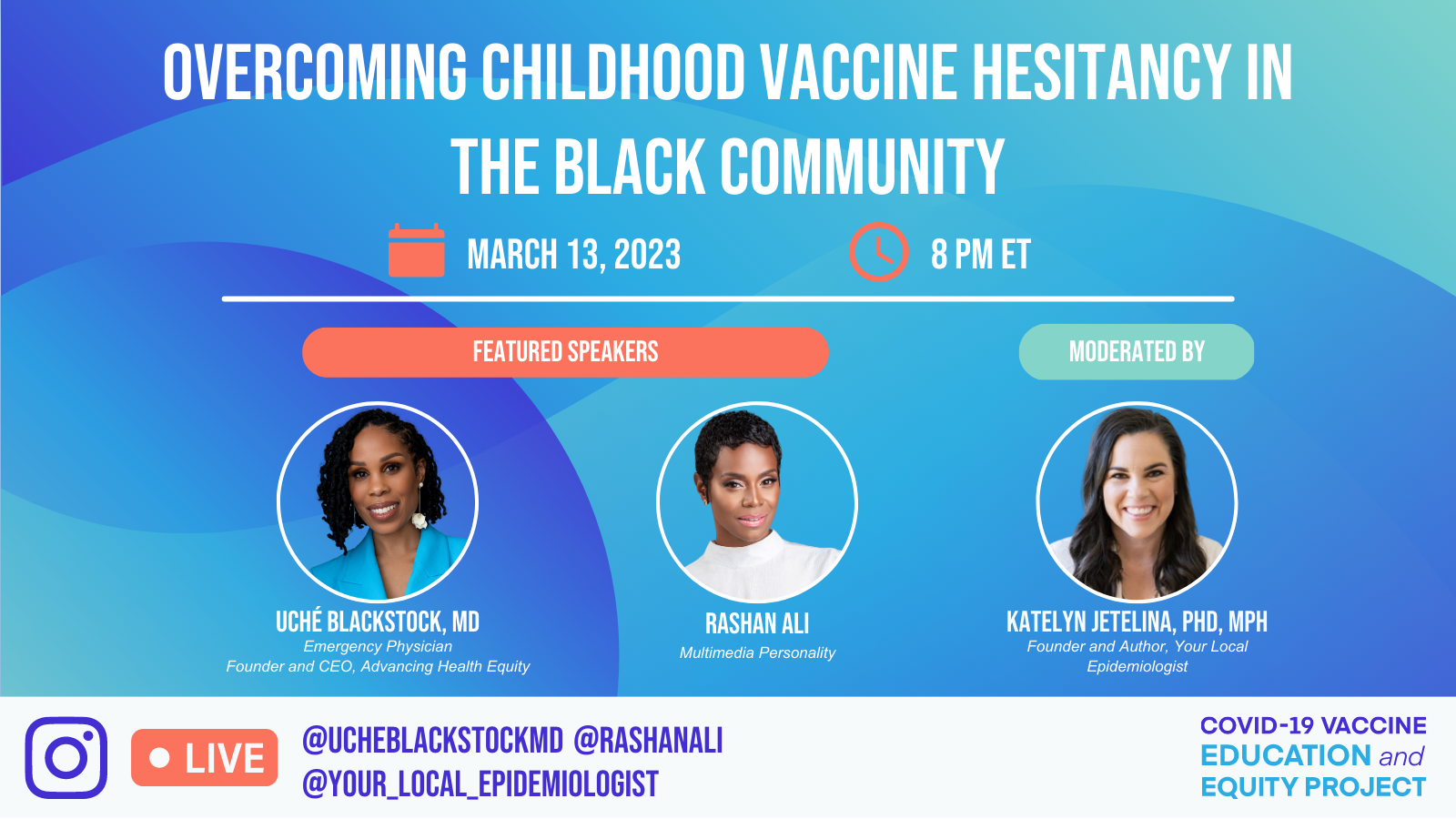
In response to recent CDC data showing a decline in routine childhood immunizations in young children, The COVID-19 Vaccine Education and Equity Project (CVEEP) is partnering with Dr. Katelyn Jetelina of Your Local Epidemiologist on an online event series aimed at parents to build vaccine confidence and overcome hesitancy issues. An Instagram Live addressing questions and considerations for parents in the Black community was held on March 13. Featured speakers included:
- Dr. Uché Blackstock, emergency physician and Founder & CEO of Advancing Health Equity
- Rashan Ali, Multimedia Personality
Dr. Jetelina moderated the discussion, which can be viewed here.
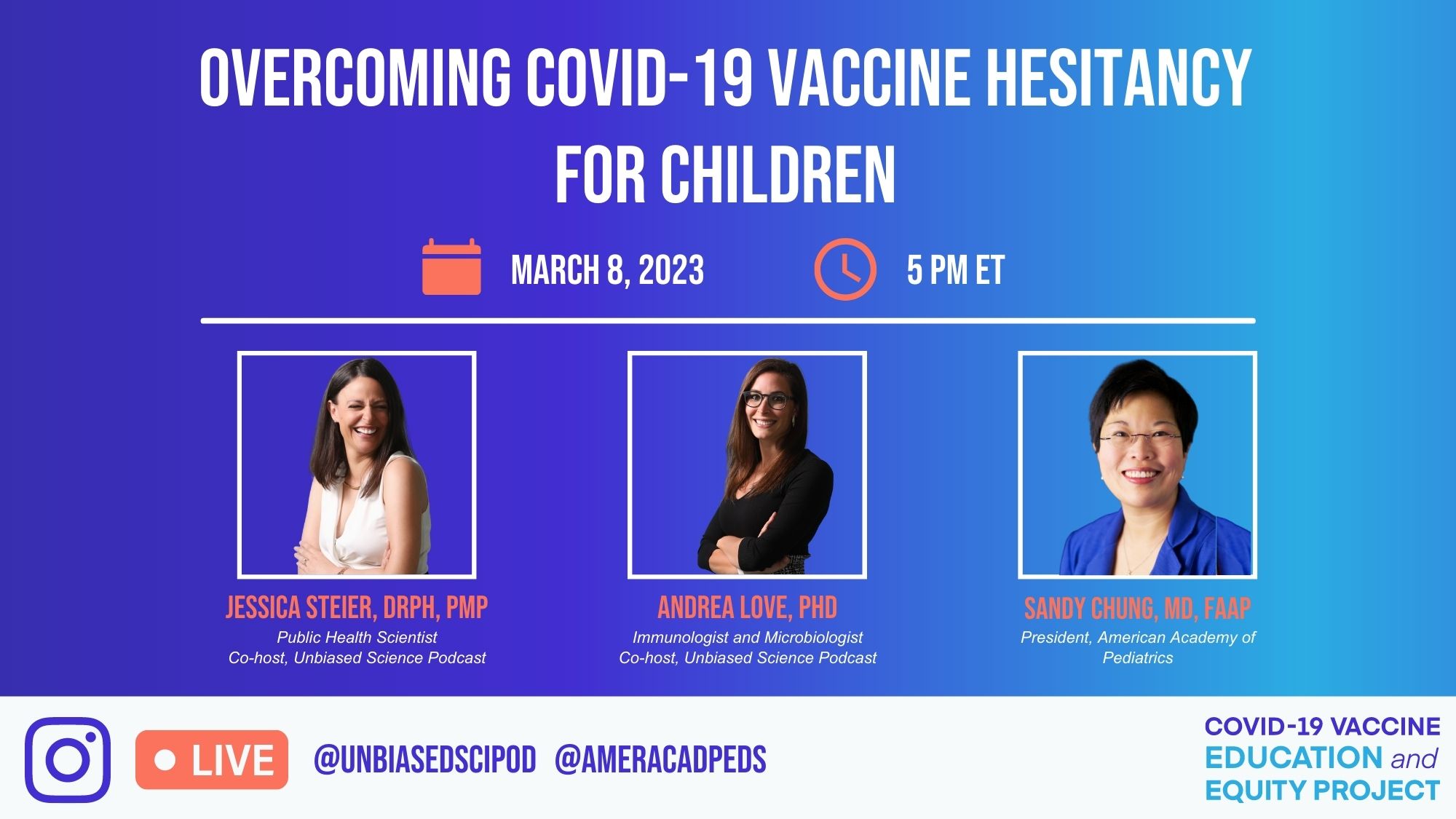
Partnering with the hosts of the Unbiased Science Podcast, CVEEP held an Instagram Live discussion addressing COVID-19 vaccination rates in children. Hosts Dr. Jessica Steier, public health scientist and Dr. Andrea Love, immunologist and microbiologist, interviewed Sandy Chung, MD, FAAP, President of the American Academy of Pediatrics. Watch the event here:
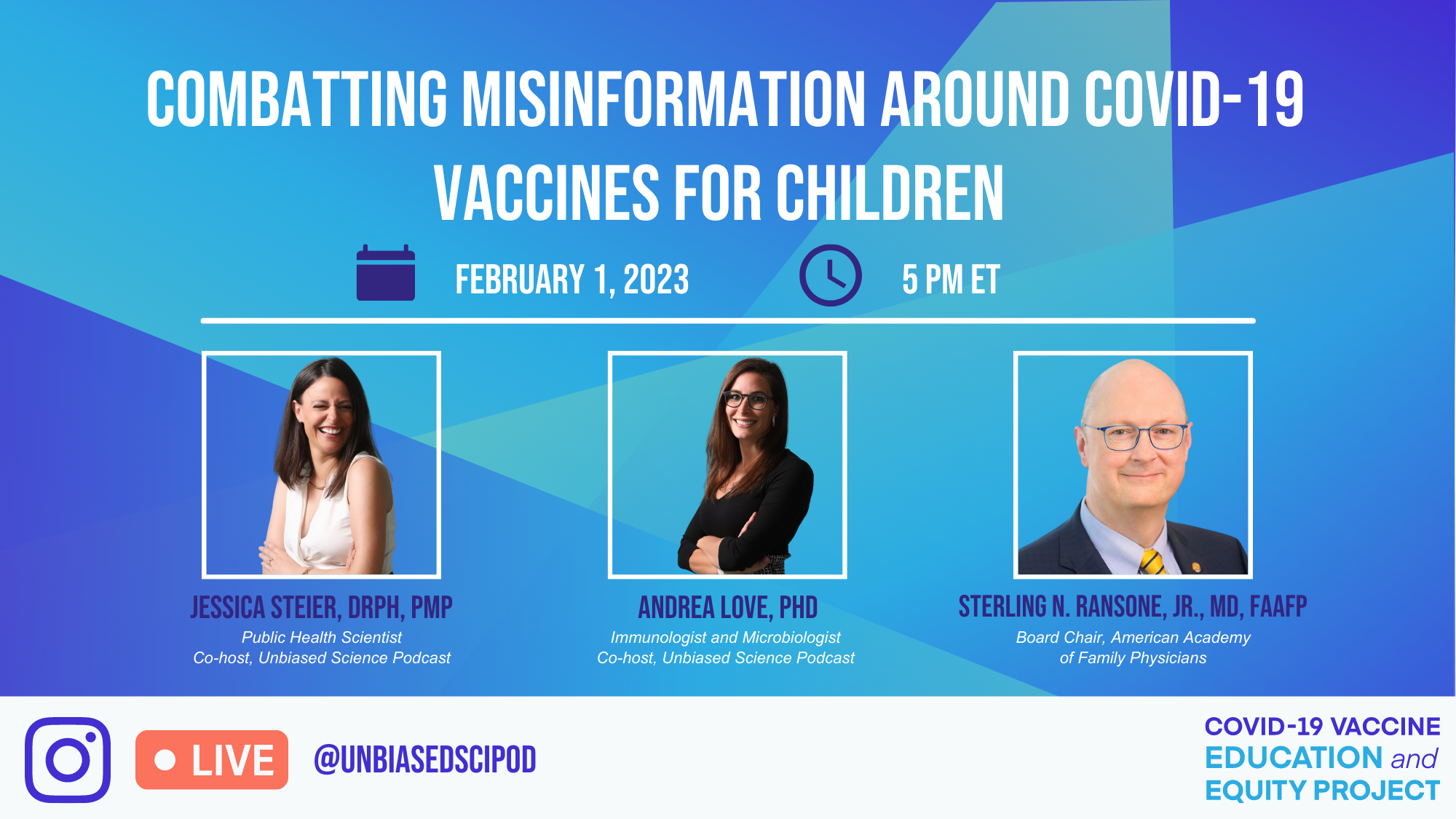
In collaboration with the Unbiased Science Podcast, CVEEP held an Instagram Live event to help combat misinformation around COVID-19 vaccines, especially for children. Hosts Dr. Jessica Steier, public health scientist and Dr. Andrea Love, immunologist and microbiologist, interviewed AAFP Board Chair Dr. Sterling Ransone about his experience overcoming vaccine hesitancy in his rural community. Watch the event here.
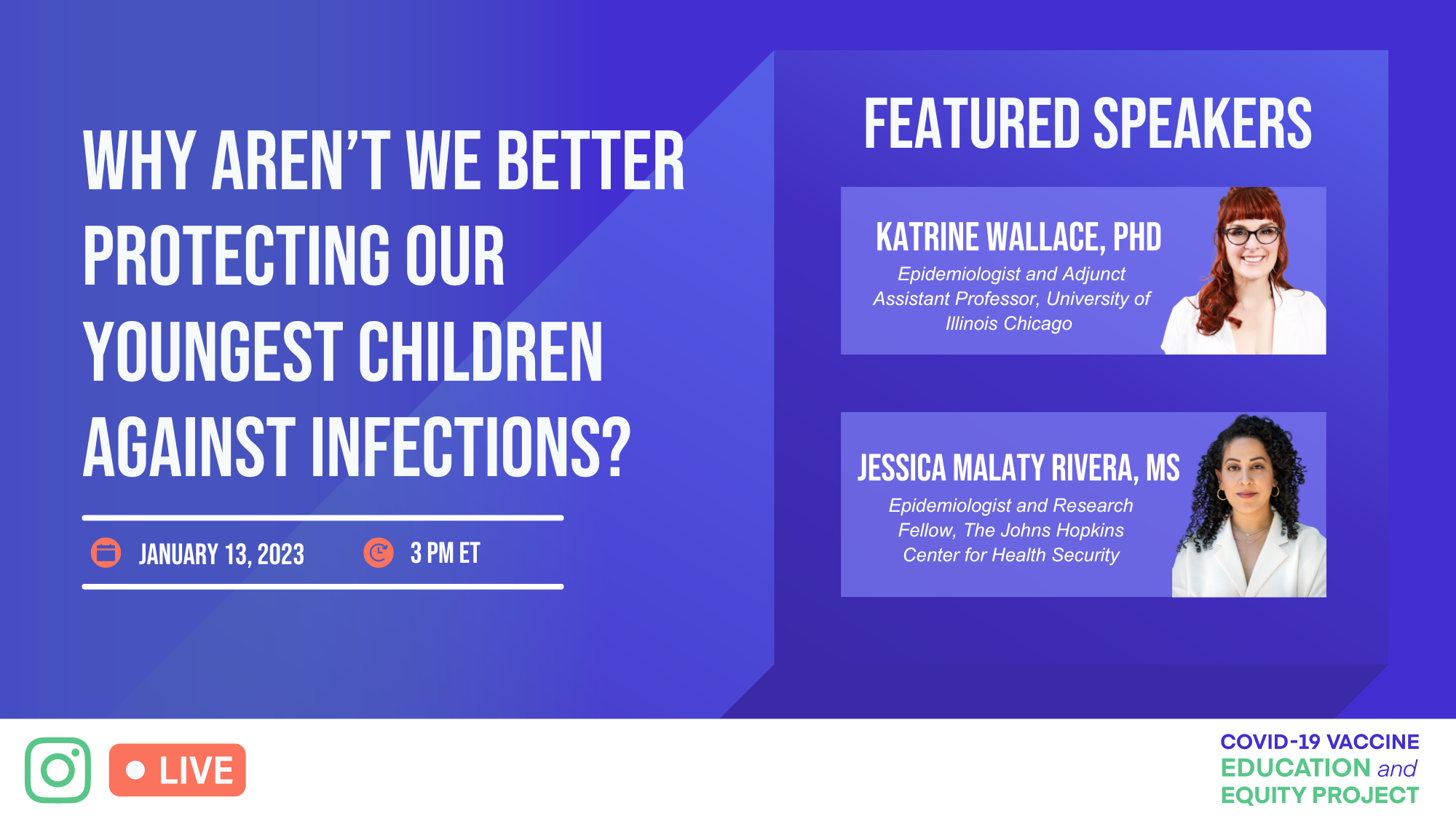
CVEEP partnered with Dr. Katrine Wallace, Epidemiologist, and Adjunct Professor at the University of Illinois Chicago, and Jessica Malaty Rivera, MS, Epidemiologist and Research Fellow at The John’s Hopkins Center for Health Security for an Instagram Live: Why Aren’t We Better Protecting Our Youngest Children Against Infections?
The pair discussed themes from their recently published Contagion article on the low uptake rates of COVID-19 vaccines for children 5 and under, answering parent questions and tackling misinformation aimed at building confidence in COVID-19 and all routine vaccines for children. The event can be viewed here.
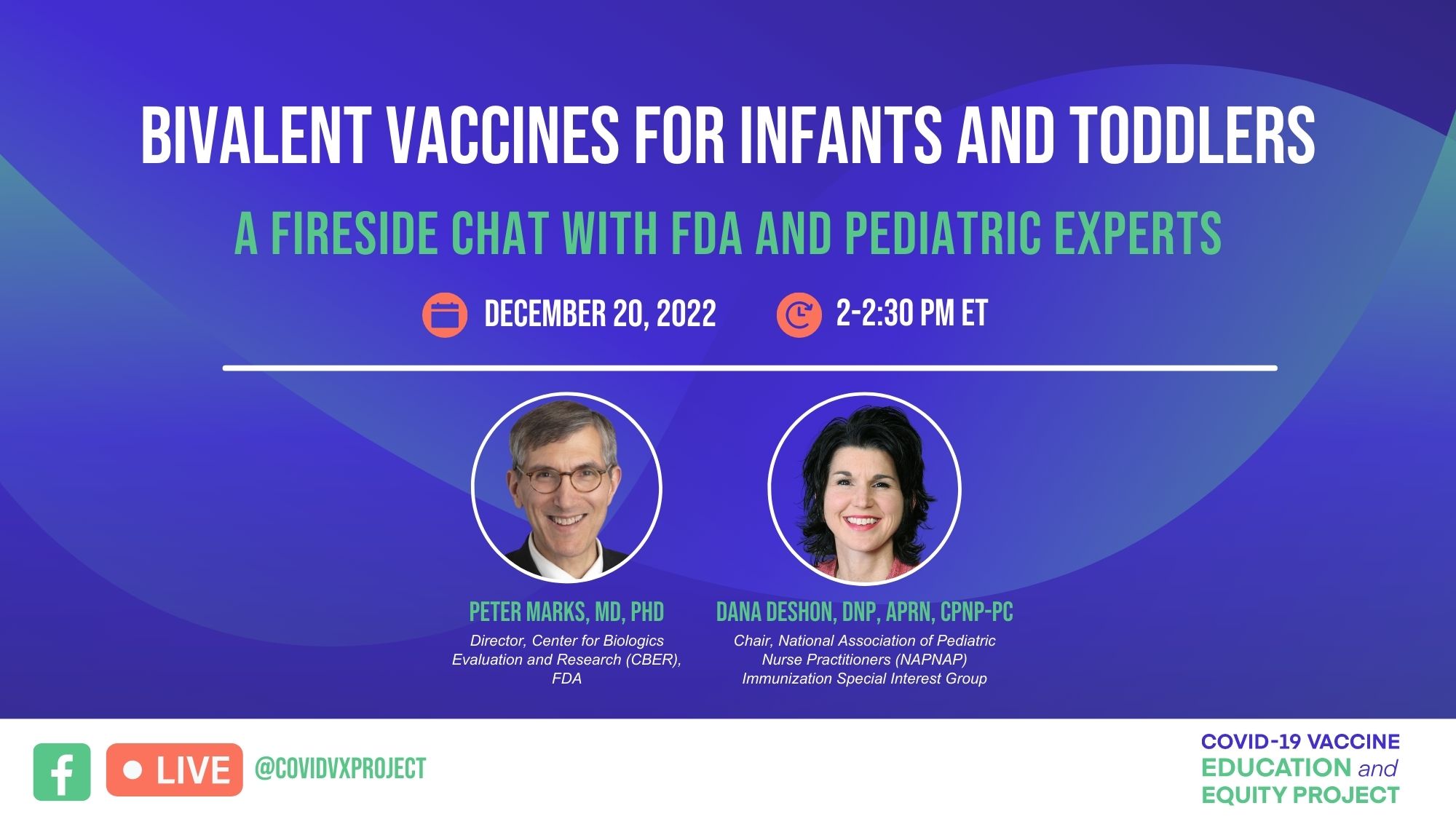
With EUAs recently granted for updated bivalent COVID-19 vaccines for children under five, the COVID-19 Vaccine Education and Equity Project convened a virtual fireside chat with FDA and pediatric experts to discuss the rationale for updated shots and address questions around eligibility and effectiveness amid the holiday season.
Panelists included:
- Dr. Peter Marks, Director of the FDA’s Center for Biologics Evaluation and Research (CBER)
- Dr. Dana DeShon, DNP, APRN, CPNP-PC, Chair, NAPNAP Immunization Special Interest Group
Watch the event here:
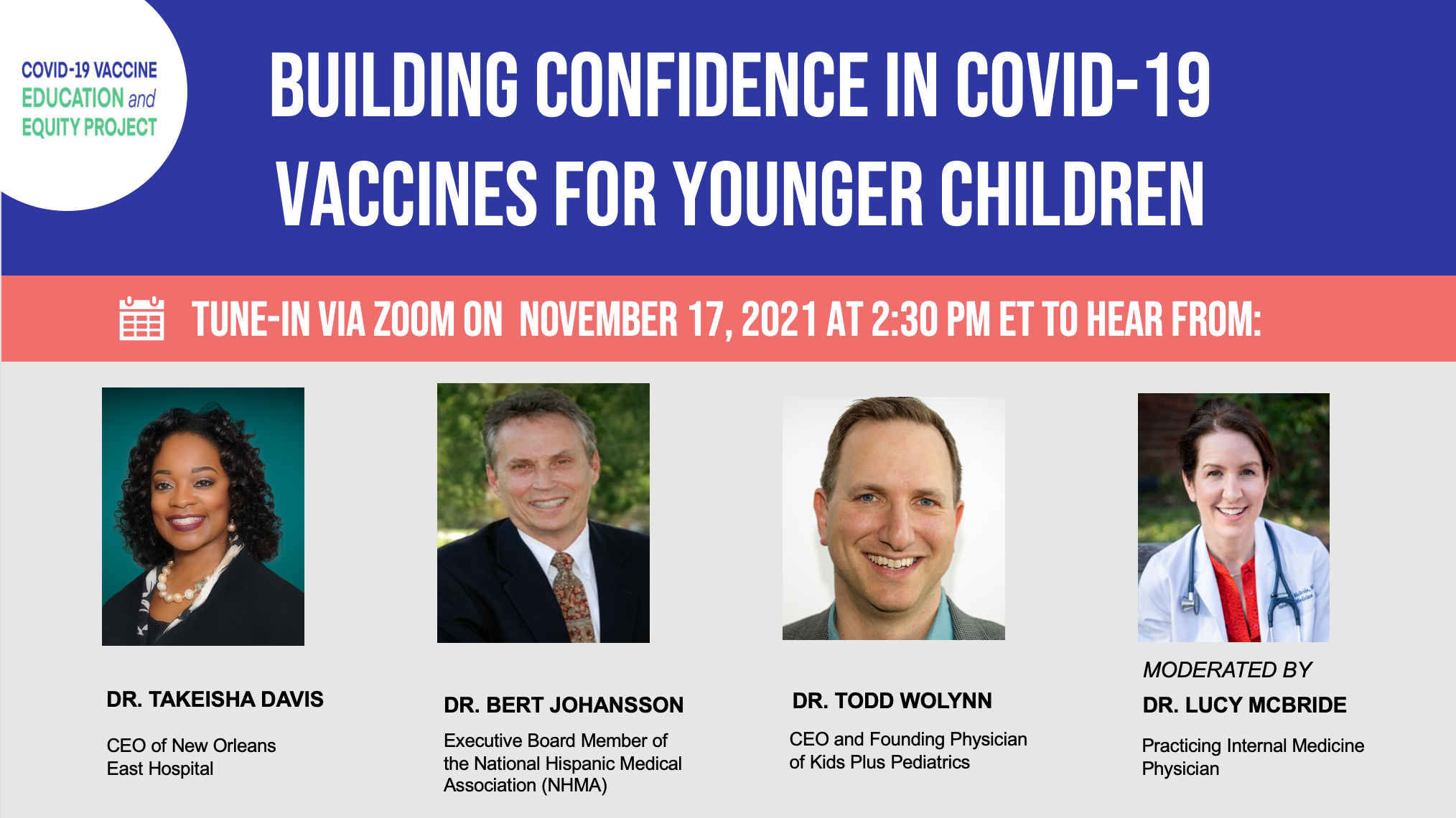
Given the recent Emergency Use Authorization for COVID-19 vaccination of children ages 5-11, the COVID-19 Vaccine Education and Equity Project convened a webinar aimed at addressing key questions and considerations related to younger children and the vaccine. A panel of health experts discussed how the clinical trials were conducted for this age group, the regulatory approval process that was followed and addressed parents’ top questions to help build confidence in the vaccine for children 5-11.
Participants included:
• Dr. Takeisha Davis, CEO of New Orleans East Hospital
• Dr. Bert Johansson, Executive Board Member of National Hispanic Medical Association (NHMA)
• Dr. Todd Wolynn, CEO and Founding Physician of Kids Plus Pediatrics
This discussion was moderated by Dr. Lucy McBride, Practicing Internal Medicine Physician.
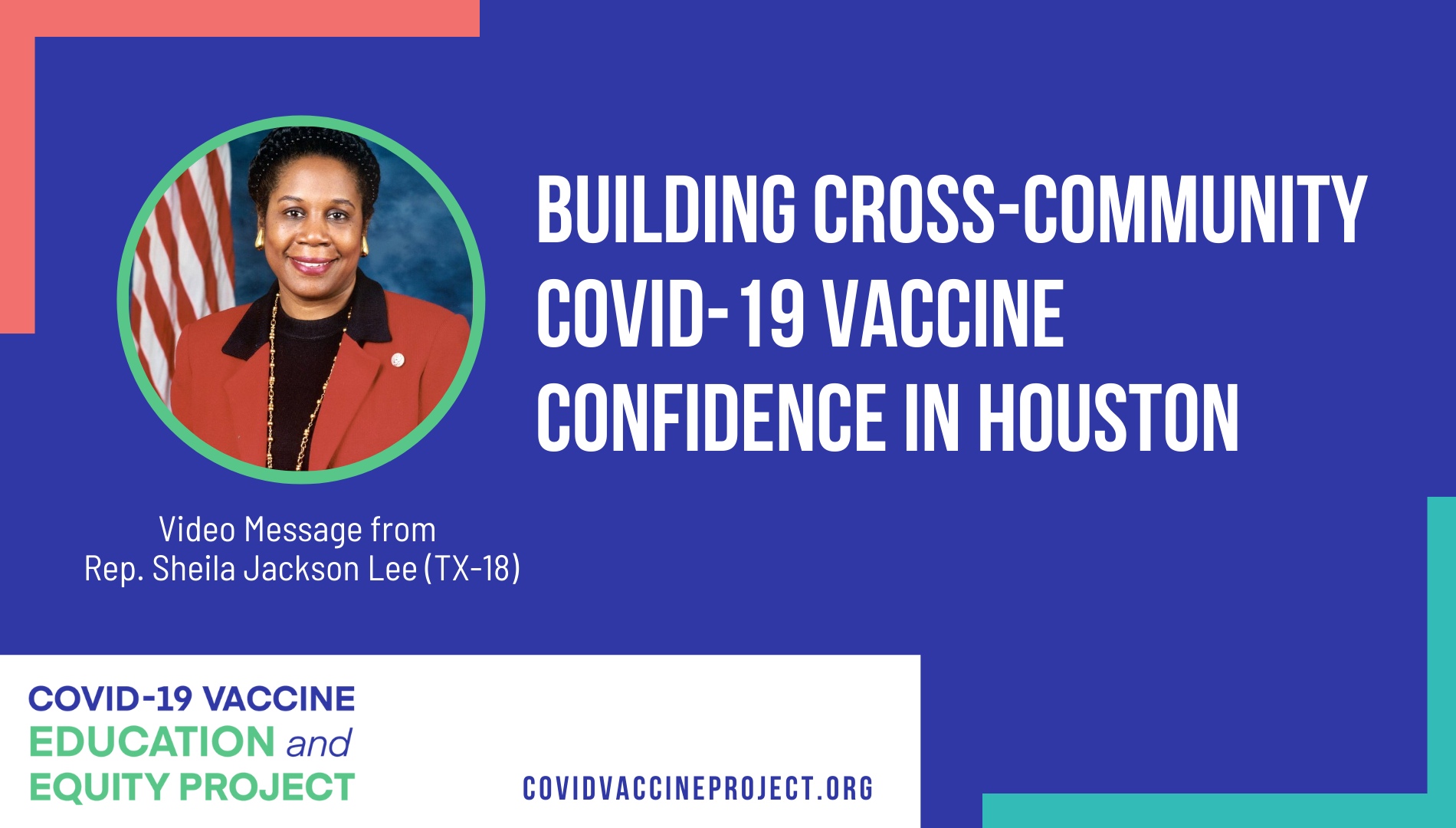
Congresswoman Sheila Jackson Lee (TX-18), Chair of the Bipartisan Congressional Coronavirus Task Force, shares an important message on the critical role of COVID-19 vaccines in saving lives. As some individuals remain hesitant to get vaccinated against COVID-19, Congresswoman Sheila Jackson Lee implores, “I’m asking you as a neighbor to go get vaccinated. I’m asking you as a family member to get vaccinated. And I’m asking you as a Houstonian, a Texan, and an American.”
To hear more from Congresswoman Sheila Jackson Lee, please view the video below:








